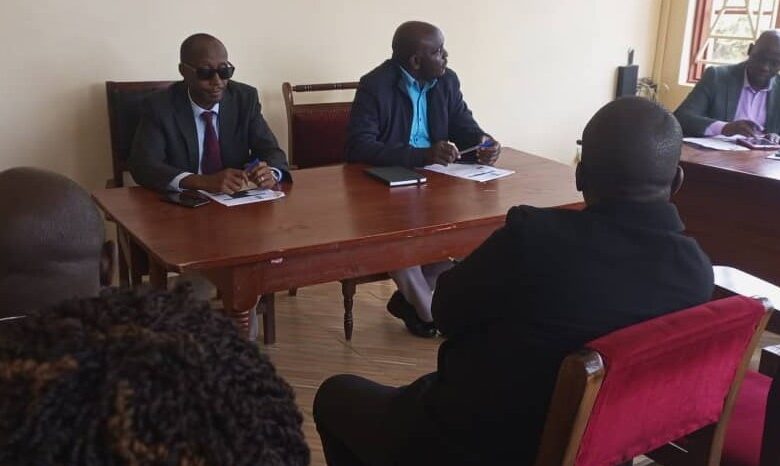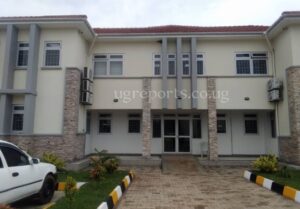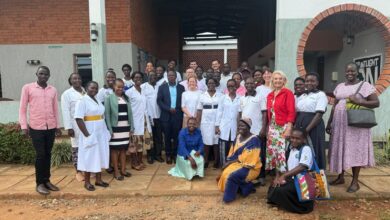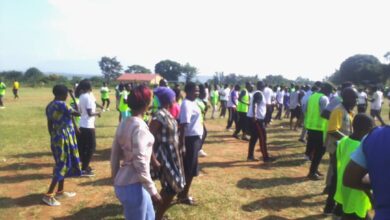Kanungu on alert for measles; vaccination centers named
Her parents allegedly took her to herbalists in Mitooma, where she died on July 8, 2024.

Kanungu: The task force meeting held on July 19, 2024, in the district health board room scrutinized the status of measles in Kanungu District.
According to Dr. Birungi Mutahunga, the District Health Officer (DHO), there have been multiple reports of measles cases in the district.
On June 23, 2024, a clinic owner in Kihihi contacted the surveillance focal person (SFP) regarding a measles-rubella (MR) suspect admitted to the clinic. The patient was from Nyabirehe village, Kihembe parish, Kihembe Sub-County.
The SFP collected a sample and, through active case searching, identified three other MR suspects in the same village who were receiving treatment from drug shops. Samples were sent to the Uganda Virus Research Institute (UVRI) through the HUB on June 27, 2024.
On July 7, 2024, the in-charge at Kihembe HCII informed the SFP about another MR suspect admitted to the health center. The patient revealed that five others in the village had similar symptoms. Six samples were collected on July 8, 2024, and sent to Kanungu HCIV for transportation to UVRI.
Additionally, a three-year-old girl, initially treated at home with herbs, was admitted to Kihembe HCII on June 25, 2024. Her measles sample, sent to UVRI for analysis, tested positive.
She was referred to Kihihi HCIV due to persistent fever and her parents allegedly took her to herbalists in Mitooma, where she died on July 8, 2024.
Nyabirehe village reported more cases than other villages, with only 2 out of 16 villages reporting cases.
Dr. Birungi mentioned the vaccination centers and the available vaccines:
Kambuga Hospital: 600 doses
Bwindi CH: 350 doses
Kihihi HCIV: 110 doses
Kanungu HCIV: 160 doses
Rugeyo HCIV: 200 doses
Mpungu HCIV: 360 doses
HCIIIs and IIs: 3100 doses
DVS: 5850 doses
Total: 10730 doses
Dr. Birungi confirmed that all the children who tested positive had been immunized, emphasizing that immunized children can still contract measles, but the disease is less severe.
Ambrose Mwesigye, the RDC of Kanungu, expressed concern that cross-border movement might be contributing to the outbreak.
He noted that while Ugandans have been immunizing their population, it is uncertain whether people across the border in the Democratic Republic of the Congo (DRC) have done the same.
Mwesigye urged Ugandans to reduce border movements, which are common for agricultural and business purposes.
Dr. Ilimaso Frank, the Surveillance Officer, clarified that Kanungu is on alert and not yet experiencing an outbreak. An outbreak is defined as three positive cases out of five samples tested simultaneously, not cumulatively.
Dr. Ilimaso reported that 22 health workers and 52 VHTs from Greater Kanyantorogo have been trained, and three outreach programs have been established. He emphasized the need for supervision of private health facilities, as all positive cases were initially managed in private clinics.
Challenges include high stigma among parents, reliance on herbal treatments, and self-medication. Dr. Ilimaso called for the involvement of local leaders, church leaders, school nurses, and school health teachers in sensitizing and informing the public.
Akeni Peter, a representative from Medical Teams International (MTI), highlighted their activities, including mentoring health workers in Kihembe and Kanyantorogo, screening asylum seekers at the Kyeshero and Ishasha border points, community sensitization, and supporting sample transportation.
Do you have an advertisement or an article you want to publish? Mail us at theugreports@gmail.com or WhatsApp +256394700683.






